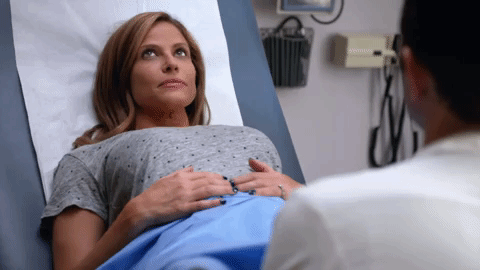
We all know how important vaginal health is to a woman’s overall health. Ongoing vaginal health issues can cause stress or relationship problems, and can even impact one’s self-confidence. And since we often have conversations within Malini’s Girl Tribe on this topic, we invited Dr Kiran Coelho to host an Ask Me Anything session for the Tribe.
Dr Coelho is the Senior Consultant Gynaecologist at Lilavati Hospital, Hinduja Hospital and Holy Family Hospital in Mumbai. She addressed all questions related to vaginal health, dealing with sexually transmitted diseases and urinary tract infections, the do’s and don’ts of taking care of your lady parts, busting myths, the best hygiene practices, common vaginal problems, exercises and vaccinations to maintain health, and more. Read on to know all the advice she shared!
Q. What are the symptoms of menopause? And what changes in lifestyle are required to manage this well?

Short-term symptoms of perimenopause and menopause are hot flushes, mood swings, insomnia, fearfulness, lack of confidence, depression, loss of libido, dryness of the vagina, frequency and urgency of urine, stress urinary incompetence, heaviness and tenderness of breasts, bloating and indigestion, and joint and muscle pains to a varying degree. Long-term symptoms are osteopenia, osteoporosis, dyslipidemia and atherosclerotic heart disease, and frequent urinary and vaginal infections.
Q. How can I maintain the health of my vagina?

Maintain good vaginal and vulva hygiene. Wash with a ph-balanced hygiene wash like V-wash or Lactacyd. Wear only pure cotton underwear and change at least twice a day, keep the perineal area dry, always wash from front to back, avoid tight and thick pants like jeans or leotards for long periods of time, never douche or spray perfume or intimate washes into the vagina, and change pads or tampons after every 4 to 6 hours during periods.
Q. Which screening tests should every 30-year-old woman get?

Annual screening tests for a 30-year-old woman should include a Pap smear to detect precancerous cells, the pelvic exam for those who are sexually active, thyroid function tests, tests to rule out diabetes, lipid profile, breast exam and breast sonography, routine urine and stool examination and a complete blood exam.
Q. What are the long-term and short-term side effects of cesarean delivery on a woman’s body?

Short-term side effects include pain, abdominal discomfort and restricted mobility. Long-term effects include numbness in the scar region for about 3 to 6 months, keloid or hypertrophic scar formation and the possibility of a caesarean section in a subsequent pregnancy.
Q. How can I control foul vaginal smell and white discharge? Also, how to lighten the vaginal area?

It sounds like you may have bacterial vaginosis and also candidiasis, which is a fungal infection. Both tend to be recurrent and your partner will also have to be treated. Lightening creams like Melalite can be used after the infection is treated.
Q. Are there any vaccinations I should take to prevent certain diseases or conditions?

1. HPV vaccine to prevent cervix cancer, ideally between 11 to 26 years, and can be given up to 45 years if Pap smear is negative for HPV, and to protect against genital warts;
2. Influenza vaccine;
3. Varicella or chickenpox vaccine especially if you haven’t had chickenpox as a child;
4. Tetanus or Td/ TDap vaccine. Tetanus diphtheria and pertussis with a booster every 3 years;
5. MMR vaccine for measles, mumps and rubella if not been vaccinated in childhood;
6. Rubella vaccine if your blood test for rubella IgG is negative;
7. A vaccine against Hepatitis B;
8. And anti-typhoid vaccine if there has been exposure or an outbreak of typhoid in your locality.
What is your biggest concern when it comes to your vaginal health? Please share it with us in the comments below!
Join Malini’s Girl Tribe on Facebook to be a part of more such conversations!

